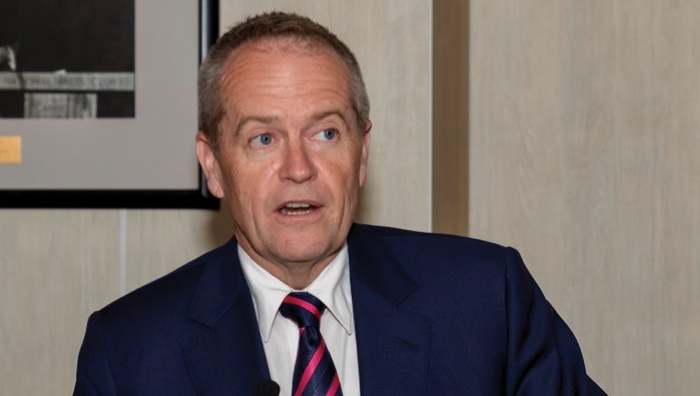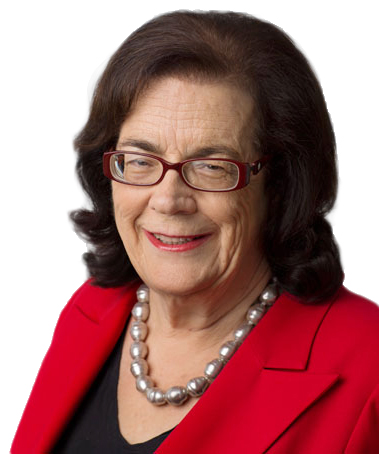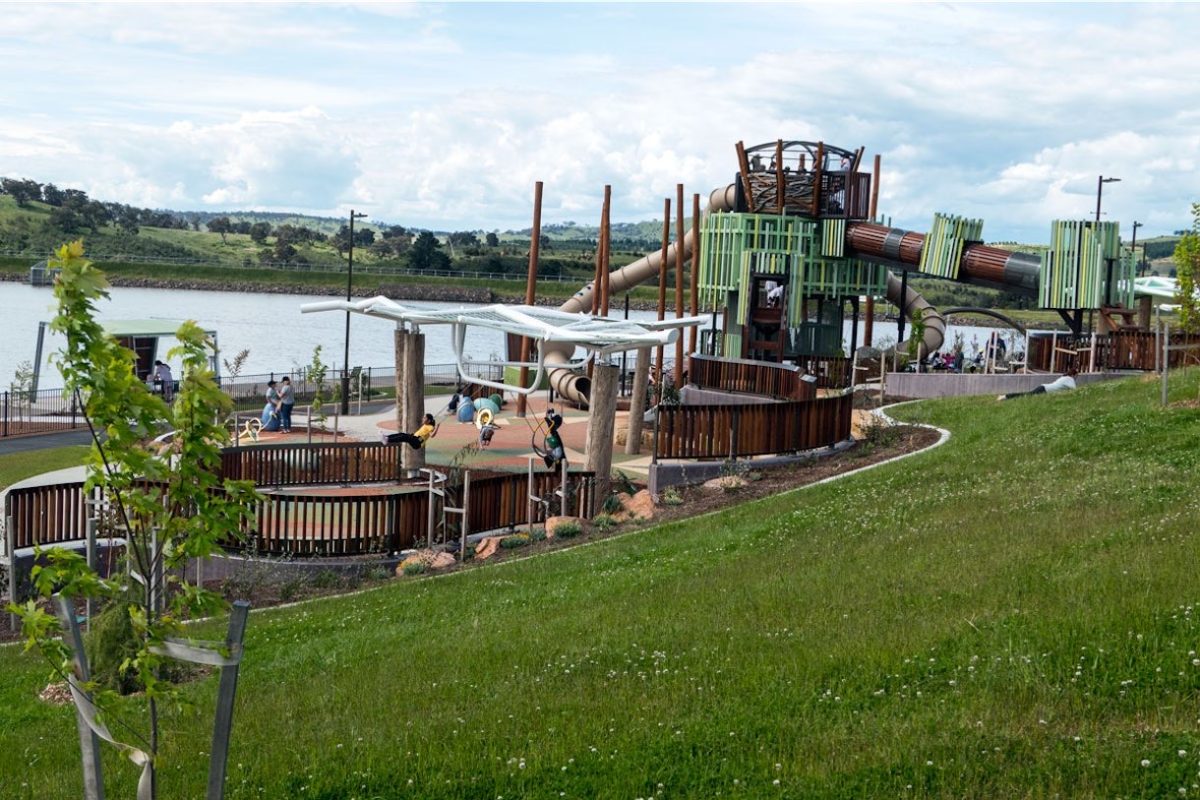
There are winners and losers in political columnist MICHELLE GRATTAN’S end-of-year report card on the Albanese government ministers.
IT’S not just kids who get report cards (PDFs these days) as school breaks up. So do government ministers, when parliament rises at year’s end.

Judgments about how members of the team have performed, often public but also private, are made by stakeholders, the media, colleagues and ultimately the prime minister.
As Christmas looms, the Minister for the National Disability Insurance Scheme, Bill Shorten, and Workplace Relations Minister, Tony Burke will be reckoning they deserve As.
Shorten this week has not only released his review of the NDIS, but seen national cabinet agree to a deal to curb the scheme’s cost explosion, shifting (with the way smoothed by generous Commonwealth funding) some of the responsibility for disability services on to the states.
Shorten can claim to be the original “father” of the NDIS in the days of the former Labor government; having to reshape it to make it sustainable is the classic poisoned chalice, but he was the best person in the government for the task.
We won’t know for several years how well the changes to the NDIS itself and the federal-state agreement for more service-sharing are actually working. It will be a long reform process, and much will depend on whether the states meet their obligations. But a direction has been set.
Burke this week will be receiving high marks from the unions. Right at the end of the parliamentary sitting he clinched a deal with Senate crossbenchers, notably David Pocock and Jacqui Lambie, to pass key parts of his industrial relations legislation, dealing with labour hire misuse and wage theft. This followed the crossbench earlier wanting the passage before Christmas of several non-controversial measures in the omnibus bill.
Parts of the legislation, covering protections for gig economy and casual workers, remain held up until next year, but Burke has secured more of it this year than seemed likely only a few days ago.
For some other ministers, their end-of-year assessments say “substantial improvement needed”.
Most recently, Home Affairs Minister Clare O’Neil and Immigration Minister Andrew Giles have struggled with the confronting test thrown at them by the High Court, forcing the release of people from immigration detention.
The government should have been prepared for all eventualities, even if it thought this particular outcome was unlikely. It should have had legislation ready to go. That it did not is as much (or more) the fault of the public servants as of the ministers, but it’s the ministers who have to carry the responsibility.
The sprawling Home Affairs Department appears dysfunctional, with long-term problems and low morale. One of O’Neil’s priorities in coming months has to be to demand it is put into more effective shape. After the sacking of former departmental head Mike Pezzullo for breaching the Public Service Code, O’Neil will be relying on the new secretary, Stephanie Foster (whose appointment was not without some controversy), to drive the bureaucratic changes.
O’Neil, whose vast empire ranges from cyber security to migration and border security, has plenty of potential but a style that usually defaults to the politics. It’s a better look when a minister rations their attacks on their opponents. This government in general and O’Neil in particular too often seem preoccupied with Opposition Leader Peter Dutton.
O’Neil is about to have another late-year test, when the government releases its migration policy. She’ll be glad of a respite from the ex-detainees imbroglio, but migration is an inherently fraught area. The policy, many months in the making, will have to be well-pitched, with answers to whatever criticisms emerge.
Giles, meanwhile, is in charge of administering the preventative detention scheme the parliament approved on Wednesday – making applications to court for the re-detention of people who previously committed major crimes and are considered to pose high risks of doing so again.
That will apply to only a limited number of the former detainees. If others, who are still in the community, are arrested, Giles will have to deal with bouts of bad publicity. (So far, five have been arrested.)
For a couple of other ministers, it’s been a very difficult year. Minister for Indigenous Australians Linda Burney found the referendum campaign a constant battle and the defeat shattering. Burney must put that behind her and turn her efforts to beefing up measures for closing the gap, an enormously hard task.
Infrastructure and Transport Minister Catherine King has been on the back foot on two fronts. Her handling of the bid by Qatar Airways for more flights saw her produce an increasing number of explanations for rejecting it but not any of them convincing.
More seriously, her announcement of the government’s cuts to parts of the infrastructure program (though not the total value of the program) has produced blowback from the states. There will be ongoing arguments about the details that will put further pressure on King.
In contrast, ministers such as Treasurer Jim Chalmers and Foreign Minister Penny Wong have travelled well this year. Chalmers has pushed into other areas (especially energy) and is visibly broadening and grooming himself as heir apparent.
As Deputy Prime Minister and Defence Minister, Richard Marles presents better in government than he did in opposition, although some experts question the adequacy and implementation of his defence policy and his excessive use of VIP planes has brought criticism.
Education Minister Jason Clare performs convincingly but his tests are still to come, especially as Australia grapples with how to improve school outcomes (this week’s PISA results reinforced how imperative this is).
The jury will be out for a long time on the performance of Climate Change and Energy Minister Chris Bowen, who is wrangling the early stages of the transition to a clean energy economy. The government has the targets and framework in place, but delivery is not straightforward and Bowen can be slow to admit when things are not on track.
Some commentators suggest a reshuffle is needed, but that would seem premature. However, more active prime ministerial and cabinet oversight is certainly required to sharpen the performance of the team.
What about the boss? Anthony Albanese is receiving poor marks just now. But things can change quickly.
This week parliamentarians mourned the death of Peta Murphy, a popular and effective Labor MP who lost a long battle with cancer. A by-election will be held early next year in her Victorian seat of Dunkley, which is on a margin of more than six per cent. This real-time electoral test for both Albanese and Dutton could set the political mood in the days leading up to the government’s next budget.![]()
Michelle Grattan, Professorial Fellow, University of Canberra, This article is republished from The Conversation.
Who can be trusted?
In a world of spin and confusion, there’s never been a more important time to support independent journalism in Canberra.
If you trust our work online and want to enforce the power of independent voices, I invite you to make a small contribution.
Every dollar of support is invested back into our journalism to help keep citynews.com.au strong and free.
Thank you,
Ian Meikle, editor




Leave a Reply